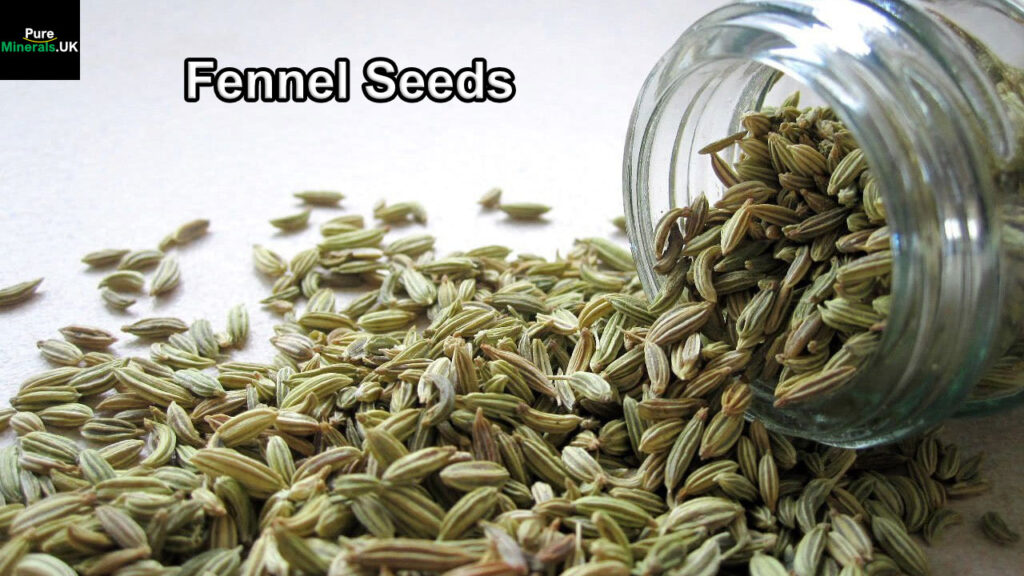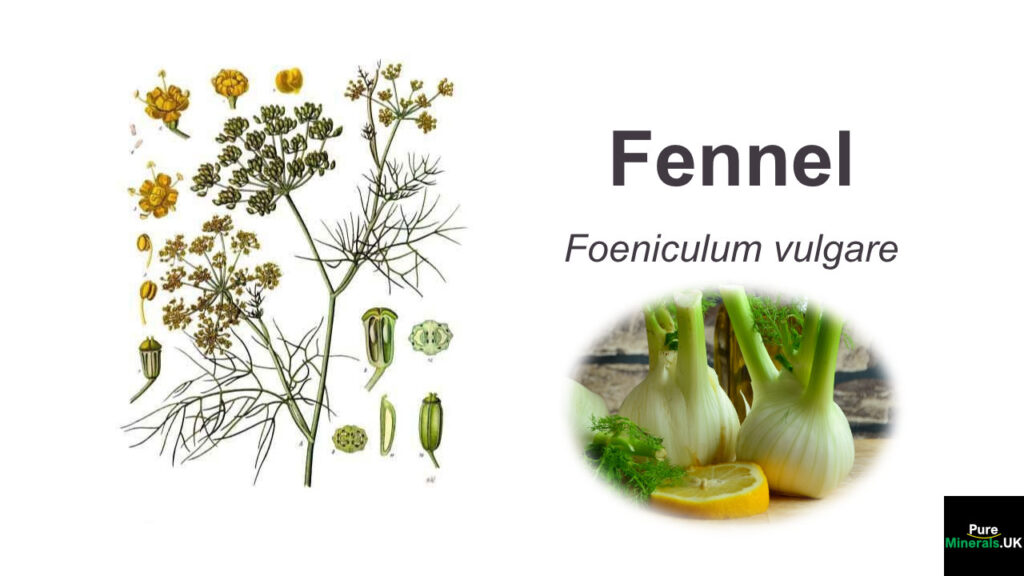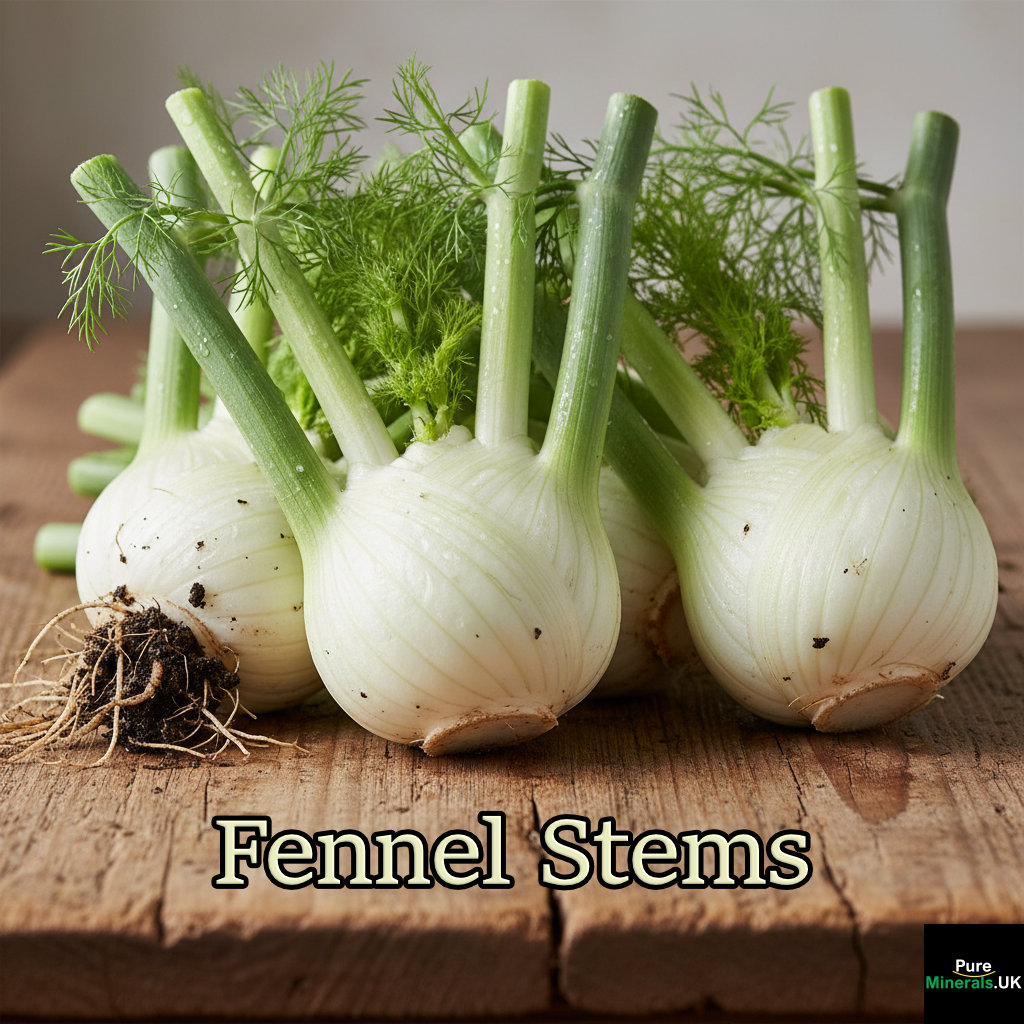
Key Takeaways
- Fennel seeds contain powerful essential oils like anethole that can significantly reduce bloating, gas, and inflammation in the digestive tract.
- Beyond gut health, fennel offers benefits for respiratory health, female hormonal balance, and contains potent antioxidants that fight cellular damage.
- A simple cup of fennel tea after meals can provide immediate relief from digestive discomfort and improve overall gut function.
- Fennel seeds’ antimicrobial properties may help balance gut flora and reduce harmful bacteria that cause digestive issues.
- While similar in flavor to anise, fennel seeds contain unique compounds that make them particularly effective for addressing digestive health concerns.
Fennel Seeds: Nature’s Ancient Remedy for Modern Digestive Woes

Digestive issues plague millions of people daily, yet one of nature’s most effective remedies has been hiding in plain sight for centuries. Fennel seeds, with their distinctive licorice-like aroma and flavor, have been trusted across Mediterranean and Asian cultures as a powerful digestive aid for centuries, long before the advent of modern medicine. What makes these tiny seeds so remarkable isn’t just their culinary versatility but their proven ability to calm and regulate the digestive system. From Ayurvedic traditions to contemporary clinical research, fennel’s reputation as a gut-health powerhouse continues to strengthen with scientific backing.
Today, we’re exploring how this ancient spice provides natural relief for common digestive complaints through its unique combination of essential oils and compounds. Whether you’re dealing with occasional bloating, persistent digestive discomfort, or simply looking to optimize your gut health naturally, fennel seeds offer a gentle yet effective solution that works in harmony with your body’s natural processes.
Why Your Gut Loves Fennel Seeds
Your digestive system is remarkably sensitive to both physical and emotional stimuli, often manifesting discomfort through bloating, gas, cramping, or irregular motility. Fennel seeds address these issues at their root cause rather than merely masking symptoms. The primary action occurs through fennel’s ability to relax the smooth muscles of the gastrointestinal tract, reducing spasms that cause pain while simultaneously stimulating the proper movement of food through the digestive system. This dual-action approach makes fennel uniquely effective for both constipation and diarrhea – seemingly opposite conditions that both benefit from improved muscular regulation in the intestines.
What’s particularly noteworthy about fennel is how quickly it can provide relief. Unlike some herbal remedies that require weeks of consistent use, many people report feeling the soothing effects of fennel seeds within minutes after consumption. This rapid action makes it an ideal after-dinner remedy, which explains why many cultures offer fennel seeds as a digestif following meals.
The Anethole Effect: How Fennel Calms Digestive Discomfort
The magic behind fennel’s digestive benefits largely comes from a compound called anethole – the same component that gives it that distinctive licorice-like flavor. When consumed, anethole acts as a potent carminative, meaning it helps prevent and expel gas formation in the digestive tract. This mechanism is particularly valuable for those who struggle with bloating or uncomfortable gas pressure after meals. To explore more herbs with digestive benefits, check out tarragon and its uses.
But anethole does more than just address gas. Research has shown it also possesses powerful anti-inflammatory properties that can soothe irritated intestinal tissues. This inflammation-calming effect makes fennel particularly beneficial for conditions like irritable bowel syndrome (IBS), where intestinal inflammation often drives symptoms. By reducing this inflammatory response, fennel seeds help restore more normal digestive function and comfort.
Additionally, anethole stimulates the production of gastric enzymes and bile, enhancing your body’s natural digestive capabilities. This means your system can process foods more efficiently, potentially reducing the likelihood of undigested food particles fermenting in the gut and causing discomfort. It’s truly a comprehensive approach to digestive support that addresses multiple aspects of gut function simultaneously.
Anti-Bloating Properties That Work Fast
Bloating – that uncomfortable sensation of fullness and abdominal distension – affects nearly everyone at some point. Fennel seeds tackle bloating through multiple mechanisms that provide noticeable relief. First, they help relax the intestinal muscles that might be contracting irregularly, causing gas to become trapped. Second, their carminative properties help disperse existing gas and prevent new gas formation from occurring during digestion.
The volatile oils in fennel seeds also possess antispasmodic qualities that reduce cramping sensations that often accompany bloating. These same compounds encourage peristalsis – the wave-like muscular contractions that move food through your digestive tract at the appropriate pace. When digestion flows smoothly without interruption or irregular contractions, bloating naturally diminishes. For more on digestive aids, explore the benefits of coriander.
Fennel vs. Anise: Similar Benefits With Important Differences
Fennel and anise are frequently confused due to their similar licorice-like flavors, but these distinct plants offer different benefits for digestive health. Both contain anethole, explaining their flavor similarity, but fennel seeds contain additional compounds, including fenchone, estragole, and various terpenes that create a more complex therapeutic profile. Fennel tends to be milder and slightly sweeter in flavor than anise, with broader digestive benefits that extend beyond gas relief to include anti-inflammatory and antimicrobial properties.
Where fennel particularly shines compared to anise is in its gentleness – making it suitable for sensitive individuals and even infants (in appropriate preparations). Its balanced composition of volatile oils makes it less likely to cause the stimulating effects sometimes reported with anise. For digestive concerns specifically, fennel’s comprehensive action on multiple digestive processes gives it an edge when addressing complex gut issues rather than just flavor enhancement.
5 Proven Health Benefits Beyond Digestion
While fennel seeds are renowned for their digestive prowess, their therapeutic potential extends far beyond soothing your gut. The same compounds that calm intestinal distress offer remarkable benefits throughout multiple body systems. These additional health advantages make fennel seeds a truly holistic healing food that deserves a permanent place in your wellness routine. Understanding these wide-ranging benefits helps explain why fennel has been treasured across so many healing traditions worldwide.
What makes fennel particularly valuable is how these benefits complement each other, creating synergistic effects that support overall health. For instance, the anti-inflammatory properties that help your gut also benefit your respiratory and cardiovascular systems. This interconnected approach to wellness aligns perfectly with holistic health philosophies that view the body as an integrated system rather than isolated parts.
1. Natural Anti-Inflammatory Properties
Chronic inflammation underlies many modern health conditions, from arthritis to cardiovascular disease and even certain cancers. Fennel seeds contain powerful anti-inflammatory compounds that help moderate the body’s inflammatory response. The anethole in fennel has been shown in research to inhibit NF-kB, a protein complex that regulates inflammation and is involved in cellular responses to stress. By modulating this pathway, fennel helps reduce excessive inflammatory responses without suppressing the immune system’s necessary functions.
This anti-inflammatory action extends beyond the digestive tract to joints, muscles, and even the neurological system. Some individuals report reduced joint discomfort and improved mobility when incorporating fennel into their daily routine, particularly when dealing with inflammatory conditions that flare periodically. The gentle yet consistent anti-inflammatory support makes fennel an excellent complementary approach to managing chronic inflammatory conditions.
2. Respiratory Relief During Cold Season
Fennel’s expectorant qualities make it particularly valuable for respiratory health, especially during seasonal challenges. The essential oils help loosen phlegm and mucus, making coughs more productive and facilitating faster recovery from respiratory infections. This expectorant action, combined with fennel’s antimicrobial properties, creates a dual approach to respiratory support – helping clear congestion while fighting the underlying infection.
Traditionally, fennel steam inhalations have been used to open congested airways and soothe irritated respiratory passages. The volatile oils release easily into steam, delivering their benefits directly to inflamed tissues. For those with chronic respiratory conditions like asthma or recurring bronchitis, regular fennel tea consumption may help maintain clearer airways and reduce the frequency of flare-ups, though it should complement rather than replace prescribed medications.
3. Female Health Support
Women have long turned to fennel for relief from menstrual discomfort and hormonal fluctuations. The plant contains natural compounds with mild estrogenic effects that may help balance hormonal activity during the menstrual cycle. These same properties can help ease the transition through perimenopause by moderating some of the uncomfortable symptoms associated with hormonal shifts. For nursing mothers, fennel has traditionally been used to support healthy milk production, though women should always consult healthcare providers before using any herb during pregnancy or lactation. For additional support, some women also explore the benefits of dandelion during their health journey.
Particularly noteworthy is fennel’s ability to reduce menstrual cramps through its antispasmodic properties. The same muscle-relaxing effects that benefit the digestive tract also apply to the uterine muscles, potentially reducing the severity and duration of menstrual pain. This natural approach to menstrual comfort offers an alternative to over-reliance on pain medications for monthly discomfort.
4. Antioxidant Protection
Fennel seeds are packed with powerful antioxidants, including flavonoids, phenolic compounds, and volatile oils that help neutralize harmful free radicals in the body. These compounds, including quercetin, kaempferol, and various phenolic acids, protect cells from oxidative damage that contributes to premature aging and chronic disease. Regular consumption of fennel provides ongoing antioxidant support that complements the body’s natural defense systems against environmental stressors, similar to how coriander offers its own antioxidant benefits.
What makes fennel’s antioxidant profile particularly valuable is its comprehensiveness – it contains both water-soluble and fat-soluble antioxidants that can protect different cellular components. This broad-spectrum protection means fennel can help safeguard various tissues throughout the body, from cell membranes to DNA. The cumulative effect of this antioxidant activity may help reduce the risk of chronic conditions associated with oxidative stress, including cardiovascular disease and certain types of cancer.
5. Antimicrobial Effects Against Common Pathogens
Research has demonstrated that fennel essential oil exhibits significant antimicrobial activity against various pathogenic bacteria, fungi, and yeasts that can disrupt gut health and overall well-being. This natural antimicrobial action helps maintain a balanced intestinal environment by selectively targeting harmful microbes while generally sparing beneficial bacteria. The combination of antimicrobial and anti-inflammatory properties makes fennel particularly effective for addressing digestive infections that cause both infection and inflammation simultaneously.
Easy Ways to Add Fennel Seeds to Your Daily Routine
Incorporating fennel seeds into your daily life doesn’t require elaborate preparations or special skills. This versatile spice adapts easily to various consumption methods, allowing you to choose the approach that best fits your preferences and lifestyle. Whether you prefer beverages, whole seeds, or cooking applications, fennel can seamlessly integrate into your existing routines with minimal effort but maximum benefit.
- Fennel tea – Steep 1-2 teaspoons of crushed seeds in hot water for 5-10 minutes
- Post-meal seed chewing – Keep a small container of whole seeds to chew after eating
- Cooking enhancement – Add to soups, stews, and vegetable dishes
- Morning elixir – Combine with warm water, lemon, and honey for a digestive kickstart
- Spice blends – Include in homemade spice mixes for regular consumption
The beauty of fennel lies in its flexibility – you can adjust the quantity and preparation method based on your specific needs. For acute digestive discomfort, a stronger tea might provide quicker relief. For daily maintenance, simply incorporating fennel into regular cooking or chewing a few seeds after meals might suffice. This adaptability makes fennel suitable for everyone from culinary enthusiasts to those simply seeking natural remedies for common complaints.
While consistency offers the most profound benefits, even occasional use provides value. Many people report significant improvement in digestive comfort within days of regular consumption. For chronic conditions, allow 2-3 weeks of consistent use to evaluate fennel’s full impact on your particular situation. The cumulative effects tend to improve over time as the digestive system responds to fennel’s regulating influences, similar to how coriander aids digestion.
Simple Fennel Tea Recipe for Maximum Benefits

Fennel tea stands as perhaps the most effective and direct way to harness fennel’s digestive benefits. The hot water extraction process releases the essential oils and medicinal compounds in their most bioavailable form. For optimal results, start with whole seeds rather than pre-ground powder, as whole seeds retain their volatile oils better during storage. Crushing or lightly bruising the seeds just before steeping releases maximum therapeutic compounds while preserving their potency, similar to how coriander seeds are used for their flavor and benefits.
- 1-2 teaspoons whole fennel seeds
- 8 ounces freshly boiled water
- Optional: a small slice of fresh ginger or lemon
- Optional: honey or stevia to taste
- Equipment: Tea infuser or strainer
Begin by lightly crushing the seeds using a mortar and pestle or the back of a spoon to release their essential oils. Place the crushed seeds in a teapot or cup and pour freshly boiled water over them. Cover immediately to trap the volatile oils and let steep for 5-10 minutes, depending on desired strength. The longer steeping time extracts more of the medicinal compounds, but can intensify the licorice flavor. If this is your first time trying fennel tea, start with a 5-minute steep and adjust based on your preference.
For enhanced digestive benefits, drink one cup after meals, especially following heavy or rich foods that might typically cause discomfort. For chronic digestive issues, consider drinking a cup both in the morning on an empty stomach and again after dinner. Many find that this twice-daily routine provides the most consistent relief from ongoing digestive complaints while improving overall gut function gradually over time.
Chewing Whole or Candied Seeds as a Digestif
Throughout India and parts of the Mediterranean, it’s common practice to offer guests a small dish of fennel seeds after meals. This tradition isn’t merely cultural—it’s deeply practical for digestive health. Chewing whole fennel seeds creates an immediate release of volatile oils directly in the mouth and throat, with effects that quickly travel to the digestive tract. The act of chewing also increases salivation and the production of digestive enzymes, jumpstarting the digestive process before the oils even reach the stomach.
For those who find the natural licorice flavor of fennel too intense, candied fennel seeds offer a more palatable alternative while retaining most of the digestive benefits. The traditional preparation involves coating the seeds lightly with sugar or honey and sometimes additional spices like cardamom. While purists might prefer the unaltered seeds, this sweetened version makes regular consumption more appealing for those new to fennel or sensitive to its distinctive taste. Even with the sugar coating, the essential oils remain active and effective for digestive support.
Cooking Applications That Preserve Healing Properties
Incorporating fennel seeds into cooking provides a more subtle but consistent way to enjoy their digestive benefits. For maximum therapeutic value, add the seeds toward the end of cooking when possible, as extended high heat can diminish some of the volatile oils. In dishes where the seeds must be added early, consider using a slightly larger quantity to compensate for the natural reduction in potency during cooking. Toasting the seeds briefly before use intensifies both flavor and medicinal properties by releasing the essential oils, making them more available for absorption.
Fennel seeds pair beautifully with fish, pork, and vegetable dishes, particularly those featuring cabbage, carrots, or legumes—foods that sometimes cause digestive discomfort. This natural pairing is no accident; traditional food cultures intuitively combined fennel with foods that might challenge digestion. The seeds also make excellent additions to breads, particularly those containing whole grains or seeds that benefit from fennel’s carminative properties. For regular digestive support, consider making a simple fennel-infused honey that can be added to teas or spread on toast as a daily preventative measure. Additionally, explore the benefits of dandelion for digestive health.
The Science Behind Fennel’s Healing Powers

Modern research has begun to validate what traditional healing systems have known for millennia about fennel’s medicinal properties. Multiple clinical studies demonstrate fennel’s effectiveness for digestive complaints, with particularly strong evidence for its anti-bloating and anti-spasmodic effects. One study published in the Journal of Ethnopharmacology found that fennel extract significantly reduced intestinal spasms compared to control treatments, providing scientific backing for its traditional use in relieving cramping and discomfort. This research helps explain why fennel provides such rapid relief for acute digestive distress.
Beyond symptomatic relief, research indicates that fennel may address underlying causes of digestive disorders by modulating gut microbiota and reducing inflammation in the intestinal lining. A 2020 study published in BMC Complementary Medicine and Therapies demonstrated fennel’s ability to inhibit inflammatory pathways while promoting beneficial bacterial populations in the gut. This dual-action approach may explain why regular fennel consumption often leads to progressive improvement in chronic digestive issues rather than just temporary symptom management.
Essential Oils: Anethole and Fenchone Explained
The primary therapeutic compounds in fennel seeds—trans-anethole and fenchone—belong to a class of organic compounds known as terpenes. Trans-anethole, constituting 80-90% of fennel’s essential oil, exhibits remarkable antispasmodic properties that directly relax intestinal smooth muscles. This muscle-relaxing effect explains fennel’s ability to ease cramping and pain associated with digestive spasms. Additionally, anethole possesses significant anti-inflammatory capabilities, inhibiting pro-inflammatory cytokines and reducing oxidative stress markers in tissue studies.
Fenchone, while present in smaller quantities, contributes significantly to fennel’s carminative (gas-relieving) properties by stimulating the production of gastric juices and enhancing motility in the digestive tract. This compound helps prevent fermentation of undigested food particles that often lead to bloating and discomfort. The synergistic interaction between anethole and fenchone creates a more potent therapeutic effect than either compound alone would provide, demonstrating the wisdom of using whole fennel seeds rather than isolated components whenever possible.
Research also reveals that these compounds have prebiotic effects, potentially nourishing beneficial gut bacteria while inhibiting pathogenic strains. This selective antimicrobial action helps maintain healthy gut flora balance without the broad-spectrum disruption sometimes caused by pharmaceutical approaches. For individuals with dysbiosis or imbalanced gut bacteria, this gentle regulating effect may contribute to long-term digestive health improvement beyond immediate symptom relief.
Clinical Studies Supporting Traditional Uses
The growing body of clinical research on fennel provides compelling evidence for its effectiveness in treating various digestive disorders. A randomized, double-blind trial published in Alternative Therapies in Health and Medicine demonstrated that fennel essential oil significantly reduced symptoms in patients with irritable bowel syndrome compared to placebo. Participants reported marked improvement in bloating, pain, and irregularity after just two weeks of treatment, with continued improvement over the four-week study period. These results are particularly notable considering the challenging nature of IBS management with conventional treatments.
For colicky infants, a controlled clinical trial published in Alternative Therapies in Health and Medicine found that fennel seed oil eliminated colic in 65% of treated infants, compared with 23.7% of controls. The rapid effectiveness and excellent safety profile demonstrated in this study support fennel’s traditional use for infant digestive discomfort, though parents should always consult healthcare providers before administering any remedy to infants. Additional studies have documented fennel’s benefits for reducing postprandial bloating, easing dyspepsia, and improving gastric emptying rates in adults with functional digestive disorders.
From Ancient Medicine to Modern Kitchen: Fennel’s Rich History

Fennel’s therapeutic use dates back to ancient civilizations, with documented medicinal applications appearing in Egyptian, Chinese, Indian, and Greek texts thousands of years ago. The ancient Romans particularly valued fennel for digestion, believing it could dispel flatulence and calm stomach discomfort after heavy meals. Hippocrates, the father of medicine, prescribed fennel for colic in infants, a use that continues today. This remarkable consistency in traditional applications across diverse cultures and time periods strongly suggests genuine efficacy rather than mere placebo effect or cultural preference.
Throughout medieval times, fennel was one of the nine sacred herbs of Anglo-Saxon tradition, believed to hold power against evil spirits and illness. Monasteries cultivated fennel extensively in their medicinal gardens, using it to treat everything from digestive ailments to vision problems. By the Renaissance, fennel had become a staple in European households both as medicine and culinary spice, with physicians regularly prescribing fennel preparations for digestive disturbances, particularly those accompanied by gas and bloating. This historical continuity of use represents one of the longest clinical trials in human history, spanning cultures and millennia.
Mesopotamian Origins and Historical Uses

Archaeological evidence suggests fennel cultivation began over 4,000 years ago in the Fertile Crescent region of Mesopotamia, where it was valued both as food and medicine. Ancient clay tablets containing medical texts from Sumer and Akkad mention fennel preparations for digestive ailments, demonstrating its early recognition as a digestive aid. From these origins, knowledge of fennel’s therapeutic properties spread along trade routes throughout the ancient world, becoming incorporated into the medical traditions of Egypt, Greece, Rome, and eventually medieval Europe. For more insights into similar herbs used in ancient medicine, explore the historical uses of coriander.
- Mentioned in the Ebers Papyrus (1550 BCE) as a treatment for flatulence
- Prescribed by Babylonian physicians for “wind in the belly”
- Included in Assyrian herbal compendiums for digestive complaints
- Used in ancient Persian medicine for infant colic and digestive spasms
- Carried by Roman soldiers to sustain energy and digestion during campaigns
The etymology of fennel itself reflects its ancient roots—the word derives from the Latin “foeniculum,” meaning “little hay,” referring to its feathery foliage. This Latin name evolved into various forms across European languages as knowledge of the plant spread northward from Mediterranean regions. Ancient physicians, including Dioscorides and Galen, documented fennel’s medicinal properties extensively, with Galen particularly emphasizing its value for improving digestion and relieving intestinal gas. These classical medical texts served as the foundation for European medicine well into the Renaissance period.
What’s particularly fascinating about fennel’s historical use is how closely ancient applications align with modern research findings. The ancient Greek practice of chewing fennel seeds after meals to prevent indigestion parallels our current understanding of how fennel’s volatile oils stimulate digestive enzyme production and reduce gas formation. Similarly, the traditional use of fennel for infant digestive discomfort has been validated by contemporary clinical studies showing its effectiveness for colic. This convergence of ancient wisdom and modern science underscores fennel’s genuine therapeutic value across time.
Cultural Significance Across Mediterranean Cuisines
Throughout Mediterranean cooking traditions, fennel has achieved status beyond mere flavoring—it serves as functional food medicine incorporated strategically into meals that might otherwise cause digestive distress. Italian cuisine pairs fennel with rich, fatty pork dishes and heavy seafood preparations, utilizing its digestive properties to balance potentially challenging ingredients. Similarly, Indian cooking incorporates fennel into spice blends for legume dishes, naturally counteracting the gas-forming tendencies of beans and lentils. These culinary patterns demonstrate an intuitive understanding of food as medicine that developed over centuries of observation and experience.
The tradition of ending meals with fennel seeds—whether plain, sugar-coated, or incorporated into digestive liqueurs—appears consistently across cultures from India to Italy. This practice represents one of the oldest continuous applications of preventative medicine, using fennel’s carminative properties to ease the digestive process before discomfort develops. The persistence of this custom across diverse cultures with limited historical contact suggests independent discovery of fennel’s effectiveness rather than cultural diffusion, providing compelling evidence for its genuine efficacy as a digestive aid.
Make This Soothing Fennel Salve for Digestive Relief
For external application during acute digestive discomfort, this warming fennel salve provides gentle relief through transdermal absorption of essential oils. The warming action increases circulation to digestive organs, while the fennel compounds help relax intestinal spasms from the outside in. This preparation is particularly helpful for children with tummy aches or adults with chronic digestive sensitivity who benefit from additional support beyond internal remedies. The salve can be applied directly to the abdomen in gentle, clockwise circles that follow the natural direction of intestinal movement. For additional herbal remedies, consider the benefits of cloves in soothing digestive issues.
To prepare the salve, combine 2 tablespoons crushed fennel seeds with 1 cup olive or coconut oil in a double boiler. Heat gently for 2 hours, keeping the temperature below 120°F to preserve volatile compounds. Strain through cheesecloth, return to the double boiler, and add 1 ounce of beeswax. Once melted, remove from heat and add the optional 5 drops of fennel essential oil for enhanced potency. Pour into small containers and allow to cool completely before sealing. This shelf-stable preparation will remain effective for up to one year when stored in a cool, dark place. Apply as needed to the abdominal area, particularly after meals or during digestive discomfort.
When to Reach for Fennel Seeds (And When to Avoid Them)
Fennel seeds shine brightest for addressing functional digestive issues, including bloating, gas, mild cramping, and sluggish digestion, especially when these symptoms occur after meals. They’re particularly effective for the uncomfortable fullness that follows rich or heavy meals, making them ideal for holiday dining or special occasions when indulgence might otherwise lead to discomfort. For individuals with chronic conditions like IBS, functional dyspepsia, or non-ulcer digestive complaints, daily fennel consumption often provides cumulative benefits that improve quality of life without significant side effects or dependencies.
However, fennel is not appropriate for all digestive conditions. Those with peptic ulcers should approach fennel with caution, as its stimulation of digestive secretions could potentially aggravate ulcerated tissue in some cases. Individuals with hormone-sensitive conditions such as estrogen-receptor-positive breast cancer should consult healthcare providers before regular use due to fennel’s mild phytoestrogenic properties. Additionally, those allergic to plants in the Apiaceae family (including carrots, celery, and mugwort) may experience cross-reactivity with fennel and should exercise caution with initial use. Always discontinue use and seek medical attention if any adverse reactions occur, including skin rashes, difficulty breathing, or worsening digestive symptoms. For more information on fennel, visit WebMD’s guide on fennel health benefits.
How To Cook Fennel
Fennel stems can be cooked and are often used to add flavor to dishes or as a fibrous, celery-like component. They are excellent for stocks, soups, or poaching liquids, and can also be roasted or grilled to bring out a sweeter flavor.
Stocks and soups: Chop the stalks and add them to your stock at the beginning or end of the cooking process to infuse a light fennel flavor.
Poaching liquid: Boil the stalks in water for 10–15 minutes to create a flavorful poaching liquid for seafood or vegetables.
Roasting: Use the stalks as a flavorful bed for roasted chicken or fish.
Stir-fries or stews: Slice them and sauté them along with other vegetables like onions and celery to use their flavor in dishes.
Frequently Asked Questions
The growing interest in fennel’s gut-healing properties has generated numerous questions about optimal use, potential benefits, and safety considerations. These questions reflect both the increased scientific attention to fennel’s therapeutic properties and the renewed public interest in traditional plant medicines for digestive health. Understanding these common concerns helps individuals make informed decisions about incorporating fennel into their wellness routines.
While research continues to expand our understanding of fennel’s mechanisms and applications, the answers provided below reflect the current scientific consensus combined with established traditional knowledge. As with any natural remedy, individual responses may vary based on personal health factors, specific digestive conditions, and concurrent treatments or medications. For personalized guidance, particularly for chronic or severe conditions, consultation with a healthcare provider knowledgeable in botanical medicine is always recommended.
Can fennel seeds help with IBS symptoms?
Yes, fennel seeds have shown significant promise for managing IBS symptoms through multiple mechanisms. Clinical research demonstrates their effectiveness in reducing abdominal pain, bloating, and irregular bowel movements—the hallmark symptoms of IBS. The antispasmodic compounds in fennel help normalize intestinal contractions, addressing both diarrhea and constipation that can occur with IBS. Additionally, fennel’s anti-inflammatory properties may help calm the hypersensitive gut lining common in IBS sufferers, reducing pain response to normal digestive processes. Many IBS patients find particular benefit from drinking fennel tea 20-30 minutes before meals to prepare the digestive tract and minimize post-meal discomfort.
How much fennel tea is safe to drink daily?
For most adults, consuming 2-3 cups of fennel tea daily is considered safe and therapeutic for digestive support. This amount typically delivers beneficial compounds without risk of excessive exposure to fennel’s bioactive components. However, individual tolerance varies, and it’s best to start with one cup daily and gradually increase as needed based on your body’s response. Pregnant women should limit consumption to occasional use and in smaller amounts (no more than one cup daily) due to fennel’s mild estrogenic effects, and only after consulting their healthcare provider. For chronic conditions requiring ongoing support, consider cycling your usage—perhaps five days on, two days off—to prevent potential sensitization or dependency over time.
Are there any side effects of consuming fennel seeds?
While fennel seeds are generally well-tolerated, some individuals may experience allergic reactions, particularly those with known sensitivities to plants in the Apiaceae family (carrots, celery, dill). The mild estrogenic activity of fennel could potentially affect hormone-sensitive conditions, though clinical significance requires further research. Excessive consumption (well beyond culinary or typical therapeutic amounts) might occasionally cause skin reactions, respiratory symptoms, or digestive upset in sensitive individuals. As with any herbal remedy, starting with small amounts and monitoring your body’s response allows for identification of personal tolerance levels and appropriate usage patterns for your unique physiology.
What’s the best way to store fennel seeds to preserve their benefits?
Proper storage significantly impacts the therapeutic potency of fennel seeds by preserving their volatile essential oils. Always store fennel seeds in airtight, opaque containers away from heat, moisture, and direct sunlight—all of which can degrade the active compounds. Glass containers with tight-sealing lids are ideal, particularly those made of amber or blue glass that block light exposure. The refrigerator or a cool pantry provides optimal temperature conditions for maintaining potency, especially in warm or humid climates. For more insights on storing spices, consider reading about coriander storage tips.
Whole seeds retain their medicinal properties significantly longer than ground fennel, often maintaining potency for 1-2 years when properly stored. For this reason, purchase whole seeds and grind small amounts as needed rather than buying pre-ground fennel powder. You can easily test for freshness by crushing a few seeds between your fingers—they should release a strong, sweet licorice-like aroma. If the scent is weak or absent, the essential oils have likely diminished, and therapeutic benefits will be reduced. For a similar aromatic experience, consider exploring the benefits of coriander seeds as well.
For maximum preservation of medicinal properties, consider vacuum-sealing larger quantities and removing smaller portions for regular use. This minimizes repeated exposure to air and moisture that gradually degrades essential oils. If you grow your own fennel, harvesting seeds when they just begin to turn from green to brown-gray maximizes their essential oil content before natural dissipation occurs.
Fennel Seed Storage Guidelines
Storage Method
Expected Shelf Life
Best Practices
Airtight container at room temperature
6-8 months
Keep away from stove, sunlight, and moisture
Refrigerated in airtight container
1-2 years
Allow container to reach room temperature before opening to prevent moisture condensation
Freezer storage (whole seeds only)
2-3 years
Double-bag or use vacuum sealing for best results
Ground fennel powder
3-4 months maximum
Not recommended for long-term storage; grind as needed instead
Can children safely consume fennel seed remedies?
Fennel has a long history of safe use for children’s digestive complaints, particularly for colic and mild digestive discomfort. When properly prepared and dosed, fennel tea or diluted fennel water is generally considered safe for children over six months of age. Clinical studies have demonstrated both the safety and effectiveness of fennel preparations for infantile colic, with significant improvement in symptoms and no reported adverse effects when used appropriately. For infants under six months, consult a healthcare provider before introducing any herbal remedy, including fennel.
For older children (1-6 years), fennel tea can be offered in small amounts (¼ to ½ cup) as needed for digestive discomfort. The tea should be weaker than adult preparations—using approximately half the amount of seeds per cup of water and steeping for a shorter duration. Fennel’s mild, slightly sweet flavor is generally acceptable to children, especially when lightly sweetened with honey (for children over one year) or mixed with a familiar juice for palatability. The external application of fennel-infused oil through gentle abdominal massage provides another child-friendly option for digestive support.
Parents should remain attentive to any signs of allergic reaction or sensitivity when introducing fennel for the first time. Start with very small amounts and observe for any adverse responses before increasing quantity or frequency. If using fennel for infant colic, work with a knowledgeable healthcare provider to ensure proper preparation and dosing appropriate for your baby’s age and weight. This cautious approach balances fennel’s potential benefits with appropriate safety considerations for young digestive systems.
For children with chronic digestive issues, fennel can be part of a comprehensive approach that also addresses diet, stress management, and appropriate medical care. While fennel may provide symptomatic relief, persistent digestive complaints in children should be evaluated by a healthcare provider to rule out underlying conditions requiring specific treatment. Used thoughtfully within this broader context, fennel offers a gentle, traditional support for children’s digestive comfort with an excellent safety profile when properly prepared and administered.
